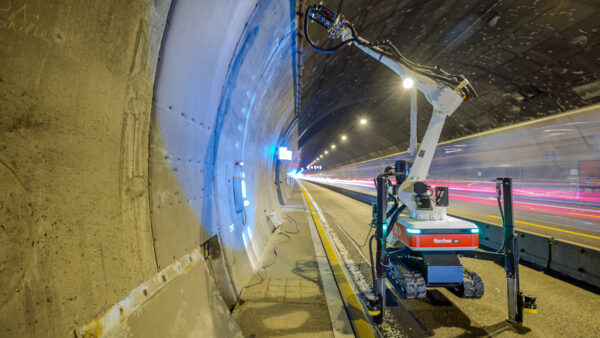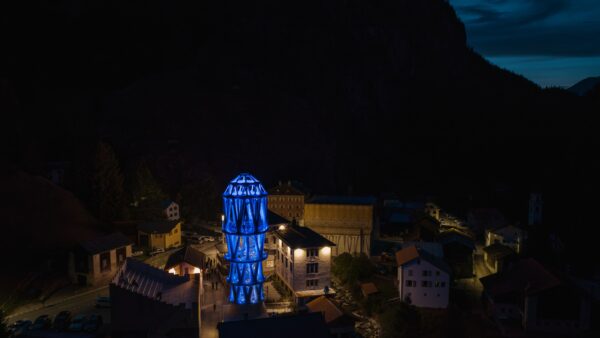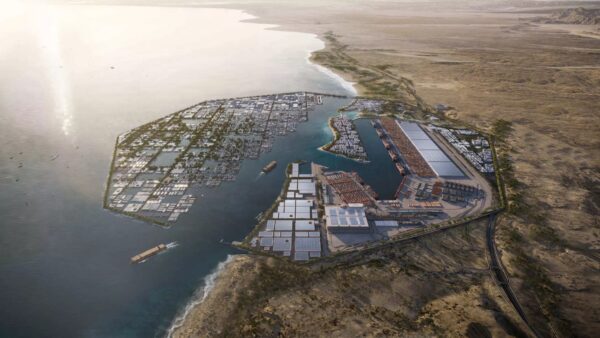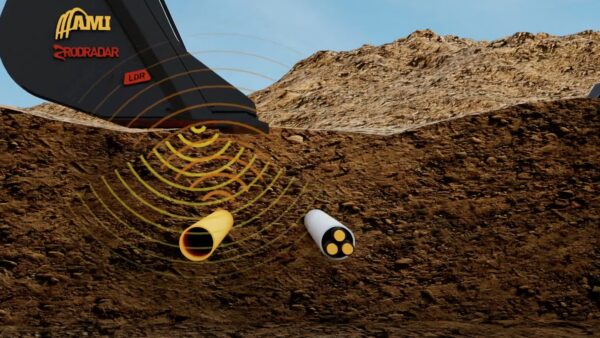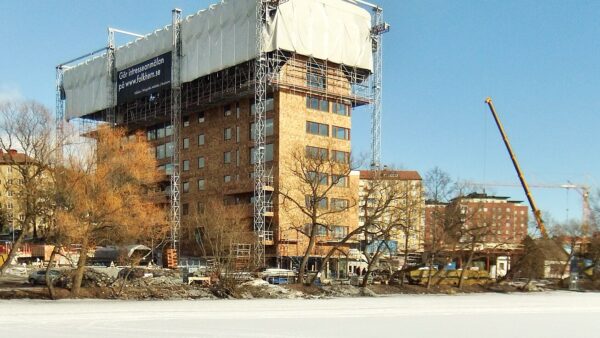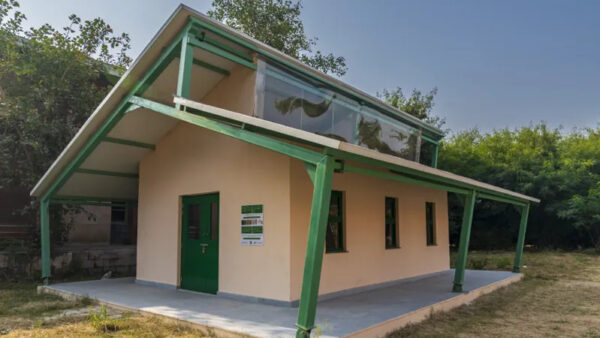11 July 2013
An astonishing plan has been proposed to provide Sydney, Australia with a much-needed motorway extension in exchange for a major new business district featuring 150 prefabricated skyscrapers – financed, shipped and delivered by Chinese firms. Rod Sweet reports.
The scheme, which includes plans to build a brand new port for receiving prefabricated elements, plus an overhead conveyor belt to remove mountains of excavated debris, is being promoted by former Australian MP and banker Ross Cameron, along with a consortium that he says will include Chinese financial institutions and construction firms.
It has been rejected by the New South Wales government, which plans instead to forge ahead with extending the M4 motorway using taxpayers’ money.
But it highlights the increasing availability of Chinese cash, know-how and appetite for risk now on offer to developed countries who need major infrastructure upgrades but struggle to fund them.
One Australian commentator, writing this week in GCR, says it shows that the Australian construction is falling dangerously behind its Pacific neighbours in innovation and competitiveness.
The plan
Under Mr Cameron’s plan, submitted as an unsolicited proposal to the government of the state of New South Wales last September, a consortium known as Aspire Sydney would extend the traffic-clogged M4 motorway in exchange for the rights to develop around 150 hectares of nearby, state-owned land, which Aspire characterises as “disused”.
Aspire wants to excavate the entire site to create a “super-pit” with a gross floor area of around 1.2 million sq m.
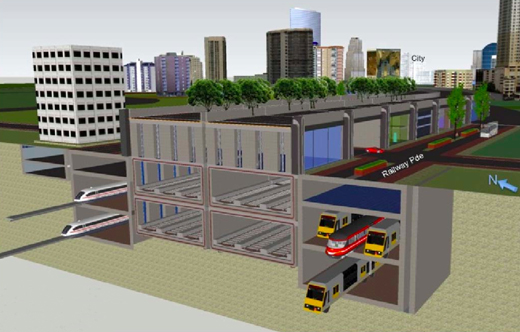
The plan calls for prefabricated “infrastructure tubes” to house relocated rail lines and services underground. (Aspire)
In this pit they would install a five-storey-deep development platform to support office towers, service centres and a commuter and residential population exceeding 300,000 people.
They would move existing rail lines underground and prefabricated “infrastructure tubes” would house new tracks and utility services and provide a platform for the new M4 East motorway.
As an indication of the sheer size of the scheme, the consortium proposes building a brand new port at Blackwattle Bay to take delivery of the structural elements from China.
Disruption to traffic would be minimised with a new “overhead carriageway” to get these elements to site, while an overhead conveyor belt would carry 10 million cubic metres of excavated materials back to the new port to be shipped away.
The basic idea is that the massive real estate development would eventually pay back the capital outlay for the road and rail work.
According to a proposal document, China’s sovereign wealth fund would be a “likely” core member of the consortium, as would a Chinese bank, a Chinese prefabricated concrete manufacturer, a Chinese rail construction firm and a Chinese shipping company.
This made-in-China aspect, Aspire believes, is a huge plus.
“Australia enjoys ready access to the worlds’ largest pool of low cost, highly skilled construction and engineering workers,” Aspire enthuses in the document. “Having undergone a four-fold rise in living standards, and the movement of more than 300 million people from farms to cities, China enjoys unmatched skills in efficiently delivering high rise and mass transit solutions.”
Rejected
The scheme was rejected by the New South Wales government in November. For now the government prefers to stick with its plan to build the new M4 motorway in the hope that toll revenues for the first, A$1.8bn phase will eventually attract private sector operators.
One commentator said this turned normal PPPs upside down, and is a sign of the recent difficult history of privately funded infrastructure projects.
Ross Cameron, a Liberal Party member of the Australian Parliament between 1996 and 2004, and then an advisor on PPP’s for Macquarie Bank, told The Sydney Morning Herald last month that Chinese investors were lining up to join Aspire’s A$100bn plan.
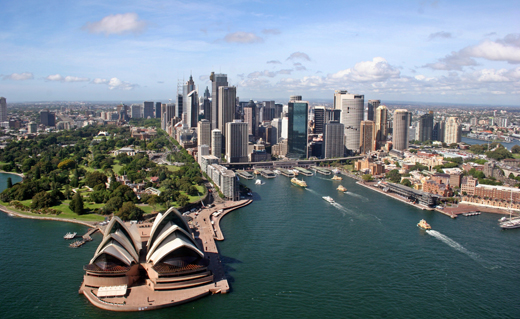
The government has rejected the deal for a Chinese-built business district in Sydney, but its promoter battles on (Beau Giles/Wikimedia)
Mr Cameron claims the Aspire plan is supported by opposition politicians and civil servants. Now he has gone to the press to drum up support among the people of Sydney.
But one Sydney resident, the construction veteran and advisor David Chandler, is worried about what the scheme signals for Australia’s construction industry.
He believes it is in a spiral of rising costs and declining innovation and productivity, which makes it vulnerable to competition from China and other developing countries in the Pacific region.
“Construction in Australia is essentially craft based and has not taken on the industrialised approach being adopted by many of our Pacific regional competitors,” he writes in this week’s GCR. “Off-site is simply becoming off-shore.”
Aspire is the latest instance of Chinese investors pursuing or considering major property schemes in the cash-strapped developed world. Other examples have cropped up this year in London, New York, and Oakland and San Francisco.

